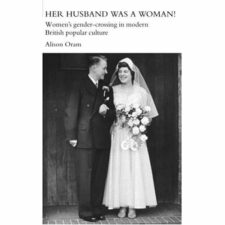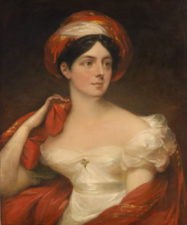With the Declaration of War, Brisbane became a city of khaki-clad Black and white American men. The treatment of the Blacks by the whites brought to life the humanity and inhumanity, the idealism and corruption, the heroism and depravity of a world gone mad. I left for Sydney.
The war was against German and Japanese facism and it was time to hop into a force, to pull my weight. I despaired at the thought of wearing a uniform. The Australian Women’s Land Army offered an opening. I set off with a group of women, some in slacks and others in skirts, in a dog box carriage from Central Station bound for the sleepy town of Young. The cherry trees carefully nurtured by the farmers were now burdened with a super abundance of fruit ready for harvesting. I missed the now dimmed lights of Sydney but the openness and crisp air took me back home and I began to remember. And think.
The monotony of filling and emptying my hands with black and red fruit gave me many hours to think. To think of the war raging in the Pacific. Thousands of lives lost each day. The hatred of the enemy ever increasing. Where was the drive to halt the dehumanisation of man and woman. Would the family of the world ever cure itself of the habit of war? Would this terrible war end, and the Germans and the Japanese with all the nations of the world unite and say ‘enough’? The destructive forces threatening us robbed me of my individualism and left me bereft of ideas. We always needed justice for the poor and disillusioned, the young and the ill. Comfort for the failed and the humiliated, confidence for the frightened. The elmination of torture and that none should be prey to the torturer.
War brought a serious lapse of integrity. Treading over those who would be different in our singlemindedness to destroy. Fear growing out of being destroyed. Just now I would think the concern for the soil of Australia seems precious. What of the days before the war with a world not so full of urgencies and so much space for human error. My hands tired of picking cherries and the day’s end had come. The sky pied with grey and crimson – like blood-stained pebbles. The earth was angry and we were angy too.
I was probably the first Black Australian woman to go into Europe to see the city of Berlin as just a mass of rubble. I came back and talked publicly about the ravages of war. Other women went in and saw what war had done. And out of this I believe I made a contribution towards building the Peace Movement in Australia. No easy task in the midst of the Cold War, with McCarthyism taking control of the minds of the people.
I heard the Women’s Charter activist and spokesperson Lucy Barnes say: ‘The women are just as disdvantaged as the Aborigines.’ I did not agree with her. Black Australians were and still are the most disadvantaged of all people, but I was apprehensive to dispute her. Jessie Street was telling me: ‘God helps those who help themselves and god help those who don’t.’ Then there was the famous Torres Strait Island blues singer, Dulcie Pitt, telling the press: ‘It’s hard to be a woman, but harder still if you are a woman and Black’ and Lucy Woodcock, senior vice-president of the New South Wales Teachers’ Federation at a meeting she was chairing to form the Aboriginal Australian Fellowship in 1956 saying: ‘Now Faith, you must organise the Aboriginal women. The women bear the children and accept responsbility for the family’s well-being.’ Those women worked in the unpopular cause of equal status for women. All were protagonists for women’s rights and all to some measure influenced my thinking about freedom and independence for women …
Black rights were an unpopular cause and few people wanted to be associated with a ’cause’ that might brand them as communist. Gibbs experienced rejection by some whom she hoped would had had the courage to join her. McCarthyism was at its height in Australia. The only white voices heard speaking about the Blacks were those of the anthropologists who were finding the Aborigines an interesting ‘species’ to study. When Gibbs and I went to enlist the help of Rex Connors (then a member of the New South Wales Parliament), Connors said to Gibbs: ‘Are you a red?’ Gibbs replied: ‘I wouldn’t come to you if I were. I am here because I am Black.’
When Pearl Gibbs came to our flat another early morning, her patience now worn thin, she looked over her cup and said: ‘You want to get off your behind and give us a hand.’ Over the tea and toast we planned a movement. It was a movement that should involve both Black and white, Jews and gentiles, political and non-political – but dominated by none. We joined forces.
Gibbs held feminist beliefs, so it was not surprising that Jessie Street was one of the first to join us. Among other women we sought to enlist were Grace Bardsley, who knew how deprived Black workers were because she had worked in a union office in the north; author Dymphna Cusack; Rosene Guterman, a humanist with a good track record of caring for the deprived and the rejected; Hepzibah Menuhin whom we hoped would give us a benfit concert; and Marjory Pizer the poet. We formed the Aboriginal Australian Fellowship with Jessie Street at the helm, steering us toward the need to change the federal Constitution. This took us into a 10-year campaign for a referendum, a daunting task indeed. It took up 10 years of my life. The clause we wanted deleted from the Constitution was section 51, subsection 26:
”The Parliament shall have power to make laws for the peace, order and good government of the Commonwealth with respect to …
‘(xxvi) the people of any race other than the Aboriginal race in any state, for whom it is deemed necessary to make special laws …’ [emphasis added]
The Aborigines were governed by state laws, except those living in the Northern Territory … Jessie Street knew it was necessary for the federal government to be responsible for all Australian Aborigines if their needs were to be met. Education, health, housing and employment required financial resources which only the federal government could provide.
On 27 May 1967, 90.2 per cent of the Australian voting population voted in favour of the change …
Faith Bandler (c) 1992
Editor’s Note: Voting is compulsory in Australia, which means that the percentage of the Australian population voting in favour of the Constitutional amendment was enormous.
Faith Bandler is recognised in Australia for her substantial work in the Referendum Campaign as well as her work generally in respect of the rights of Australian Aborigines, Torres Strait Islands and Pacific Islanders. She holds the AC, the highest award in the Order of Australia. Her father was from Vanuatu and Faith Bandler identifies as a South Sea Islander Australian. Her books include Wacvie, a biography of her father, published in 1977 by Rigby, Adelaide, Australia, and Welou, My Brother, published in 1984 by Wild & Woolley, Sydney, Australia. On the Aboriginal Education Foundationi (AEF) she worked with Di Graham, a strong supporter of Indigenous Australian rights and a renowned feminist.

